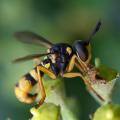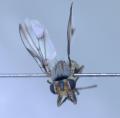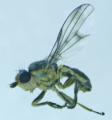Diptera.info :: Identification queries :: Diptera (adults)
Who is here? 1 guest(s)
|
Milichiidae - Phyllomyza sp.
|
|
| Walther Gritsch |
Posted on 17-03-2018 01:12
|
|
Member Location: Copenhagen Posts: 281 Joined: 01.02.09 |
Hello friends Does anybody have experience in dealing with the genitalia of Phyllomyza …? I ask this because I think I might have found Phyllomyza rubricornis in connection with my malaise trap project in a birch forest some miles from Copenhagen. I get Ph. securicornis quite regularly, especially early on in the summer, but the only specimen I got last year was from August and it is clearly not securicornis having very short pubescens on the 3rd antennal segment. But this segment is supposed to be reddish. All keys I know of agree on this. My specimen however has the 3rd segment dark (brownish or black) just like the species I've decided is securicornis on account of its long pubescence. That is why I thought the genitalia might give the answer but they are never illustrated. I've prepared some pictures. Ph. securicornis on the left, Ph. rubricornis(?) on the right. The differences are slight and some of it could be accounted for by different angles. The aedeagus however seems to be different indeed. The securicornis is from June 2016 and the rubricornis(?) is from August 2017. If it is Ph. rubricornis it is unrecorded in Denmark. I hope someone will be able to help me sort this thing out  Picture #1 caudal view of the genitalia. Greetings Walther Gritsch attached the following image: 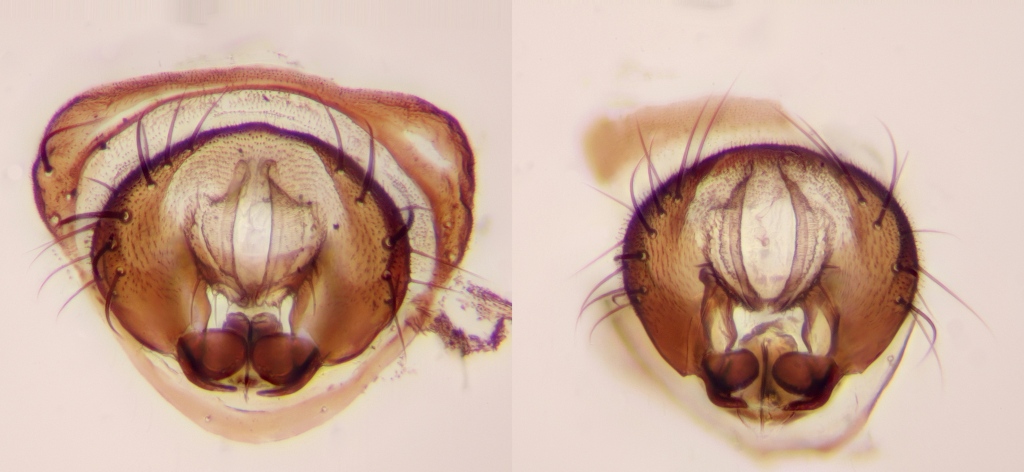 [162.74Kb] Walther |
|
|
|
| Walther Gritsch |
Posted on 17-03-2018 01:13
|
|
Member Location: Copenhagen Posts: 281 Joined: 01.02.09 |
Picture #2 aedeagus in lateral view.
Walther Gritsch attached the following image: 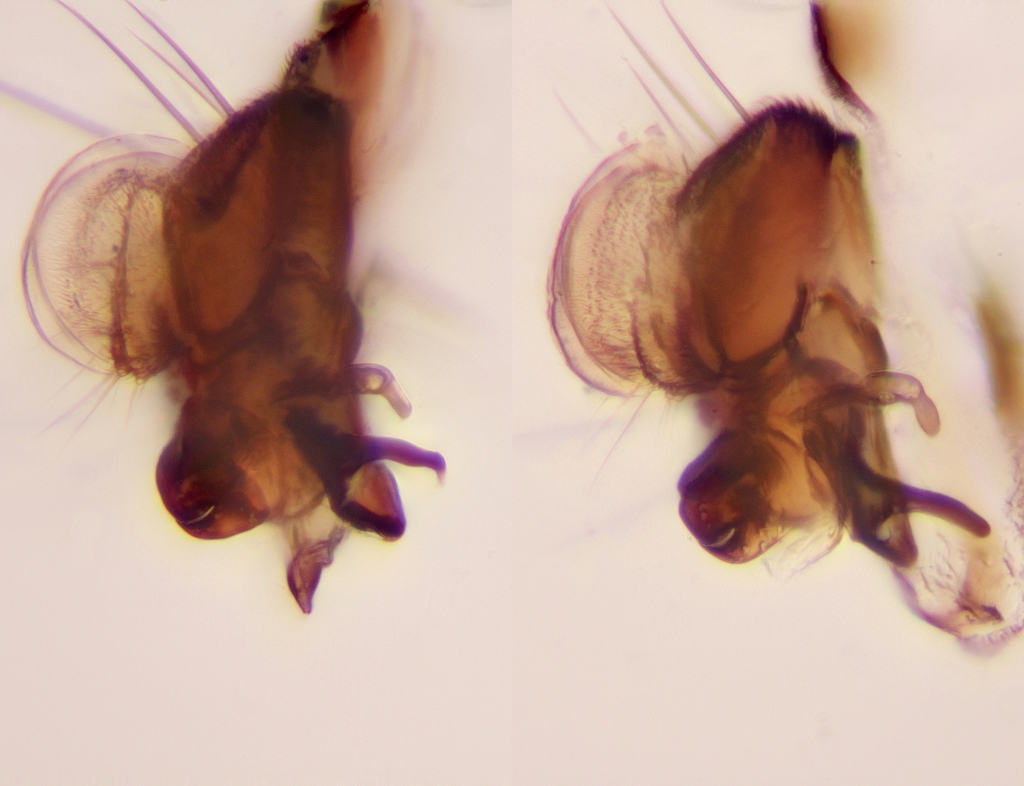 [184.37Kb] Walther |
|
|
|
| Paul Beuk |
Posted on 19-03-2018 21:26
|
|
Super Administrator Location: Netherlands Posts: 19365 Joined: 11.05.04 |
Any other characters to be made visible (thorax, for example)?
Paul - - - - Paul Beuk on https://diptera.info |
| Walther Gritsch |
Posted on 20-03-2018 22:53
|
|
Member Location: Copenhagen Posts: 281 Joined: 01.02.09 |
It's not easy to make sensible pictures of the specimen in its current state I'm afraid but I've now checked the fly: 1+3 dc, acr in 6 rows, scutellum with 2 pairs of setae, the apical ones diverging, arista mid-dorsal on 3rd antennal segment, 3rd antennal segment monochrome dark and with very short pubescence, palps with setae below, frons with 2 parallel rows of setulae down the middle, halteres pale, no apparent patterns of microtomentum. This pretty much summons up the diagnosis. I hope you'll be able to deduct something out these data. Has no one ever made a study of the genitalia? Walther |
|
|
|
| Jump to Forum: |



